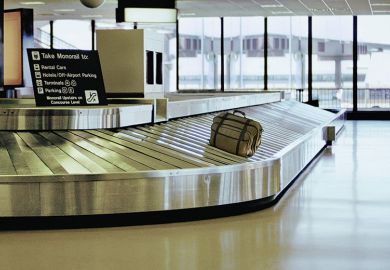Global business schools have seen a resurgence in the number of applications to MBA programmes following a four-year decline, according to a new worldwide report.
In its 2016 Application and Enrolment Report, the Association of MBAs (AMBA) found a global net growth of 5 per cent in the number of applications for AMBA-accredited programmes in 2014-2015. In the four years prior to 2014, application numbers had decreased by 14 per cent.
AMBA, one of the three major business education accreditation bodies, focuses solely on postgraduate management education.
Their global study measured schools’ intake and graduation figures for 2015, with the latest report including submissions from 218 schools across six continents. With 92 per cent of AMBA-accredited institutions providing data, it represented a record number of participating schools.
The report noted that enrolments remained relatively static around the world in the period measured – with an overall 13 per cent drop between 2011 and 2015 – suggesting that competition to get on to AMBA-accredited programmes was fierce. However, there were encouraging signs from certain regions, with Africa and Oceania reporting an increase in enrolments between 2011-15 of 4 per cent and 21 per cent, respectively.
Andrew Main Wilson, chief executive of AMBA, said the boost to applications proved that high-quality postgraduate management education was still desirable in a world that is “more competitive, global and uncertain than ever”.
“Whichever country you’re living in and working in, you’re facing global competition, and the need to be a more professional manager,” he told Times Higher Education. “The need for the best possible business education you can afford has never been more important or desirable.
“People realise the world is not going to suddenly get a lot easier. There’s no point in waiting two or three years to see if the [economic] climate might be more favourable.”
Mr Main Wilson believed that the impact of significant political fluctuations, including potential problems with securing visas to study in the UK, has seen the demand for business education in other regions increase in recent years.
“[In Australia] there’s been a big influx of Asian students. If you go there and study [for] a full-time MBA, you’re automatically granted a work permit for a small period of time afterwards,” he said.
“Certainly when there were a lot of rumours of visa problems in the UK, Australia and New Zealand saw an immediate rise of applicants from Asia to do MBA programmes, on the natural basis that students want to go where they think they’ll be welcomed.”
Mr Main Wilson warned that the positive results did not mean that schools could rest on their laurels, and they would “have to keep evolving”.
“You will get some employers saying there are still some skills [students] need to be taught. It’s the softer skills that are more difficult to teach. Softer leadership [and communication] skills [are the ones that] employers would like to see polished to the same standard as the classic MBA taught skills.”
Register to continue
Why register?
- Registration is free and only takes a moment
- Once registered, you can read 3 articles a month
- Sign up for our newsletter
Subscribe
Or subscribe for unlimited access to:
- Unlimited access to news, views, insights & reviews
- Digital editions
- Digital access to THE’s university and college rankings analysis
Already registered or a current subscriber?







